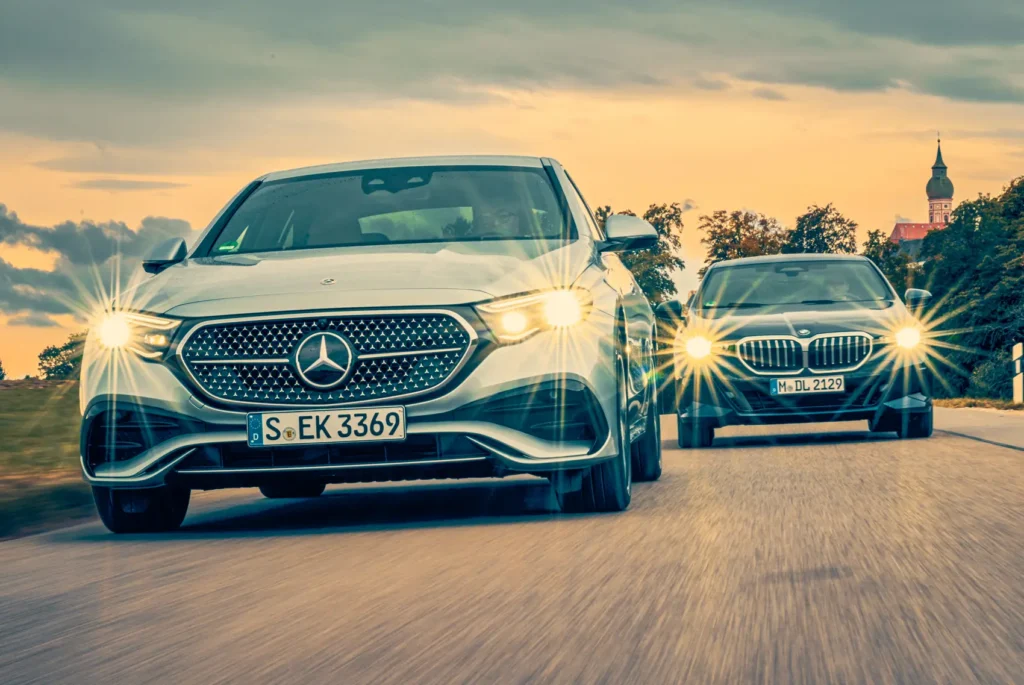
It is no secret that Mercedes-Benz and BMW have been fierce competitors for decades, but a surprising turn of events could see Mercedes sourcing four-cylinder engines from BMW.
According to a report by Manager Magazin, which BMW has not yet confirmed, discussions are underway that might reshape how the two German giants operate.
Mercedes CEO Ola Källenius has already admitted to disappointing financial results. Profit margins in the car division fell to 3.2 percent in the second quarter, and sales in the first half of the year dropped to 900,000 units, the lowest since 2020. He told his leadership team that cost-cutting isn’t enough if the lineup lacks the right products.
Engines are a key problem. Mercedes requires more combustion units for its plug-in hybrids than originally anticipated. The brand had previously turned to Geely in China for four-cylinder supply at a lower cost, but mounting political challenges in markets like the United States make relying on Chinese-built engines increasingly problematic. This has pushed Mercedes toward BMW as a potential partner. According to BMW Blog, BMW AG declined to comment when approached.
Manager Magazin reports that Källenius first floated the idea with BMW CEO Oliver Zipse nearly a year ago. Since then, technical teams led by Markus Schäfer from Mercedes and Joachim Post from BMW have allegedly been working on the specifics. The deal could begin in 2027, with BMW’s Steyr, Austria plant taking the lead. That facility produced more than one million engines in 2024 alone.
The initial focus would be BMW’s four-cylinder petrol engine, though diesel versions and possibly other driveline elements might follow. Sources also claim that joint production in the U.S. is on the table to avoid tariff complications.
For Mercedes, this would mark a clear strategic pivot. Källenius has long stressed a move away from combustion engines, but the company is now taking a more pragmatic approach. For BMW, the upside is obvious: higher production volumes, extra revenue, and a reputational boost if even their biggest rival opts to use BMW engines.
BMW already supplies engines to several brands. Niche players like Morgan and Ineos rely on them, but so do larger names such as Land Rover, Range Rover, and Toyota. Adding Mercedes to that list would be a landmark moment. Supplying engines to a direct competitor would lock in business for Steyr and reinforce BMW’s global standing in engine engineering.
How deep this cooperation might go is still unknown. Current talks reportedly revolve around the B48 petrol four-cylinder, with the B47 diesel potentially next in line. Which Mercedes models will be powered by BMW engines, and the exact timing of the rollout should become clearer in the coming months if the negotiations prove accurate.
Via BMW Blog

